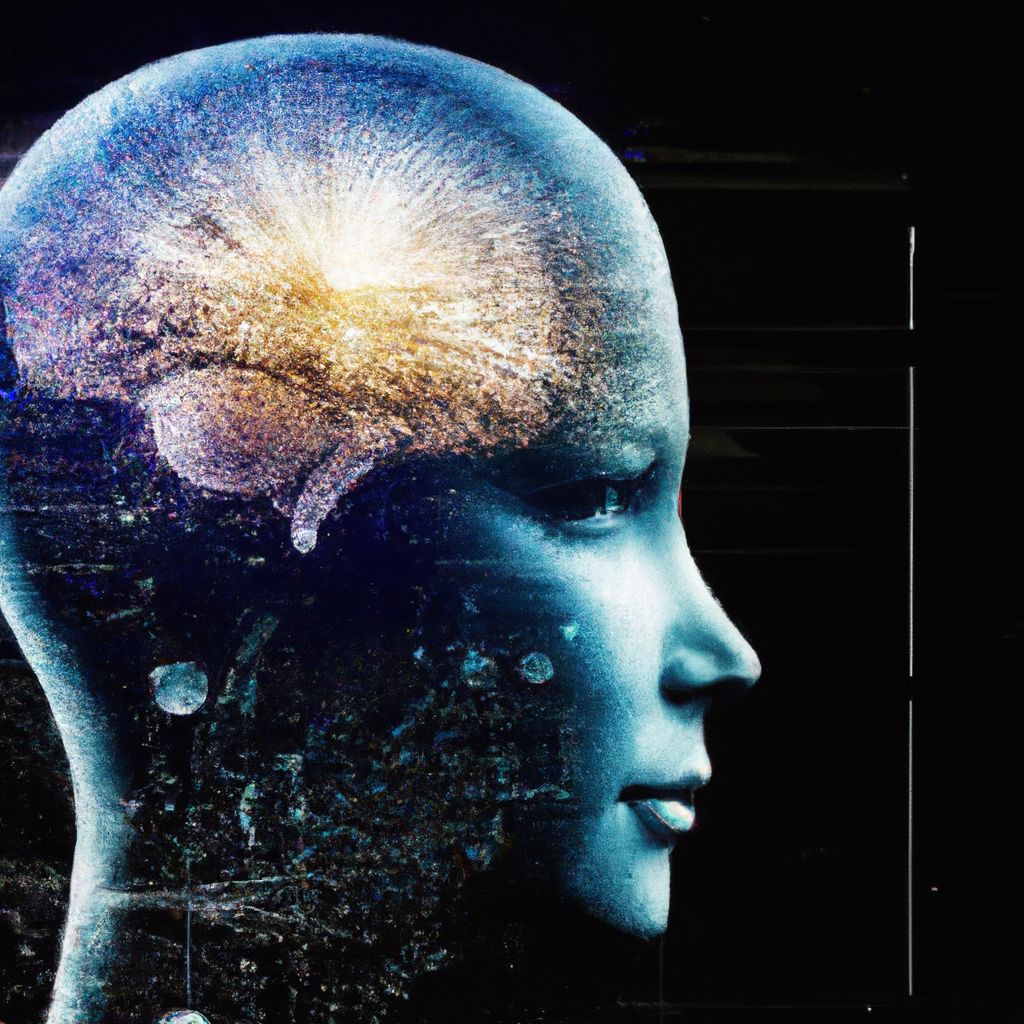In this fast-paced world of technology, the rise of Artificial Intelligence (AI) is inevitable. As AI continues to advance and infiltrate various aspects of our lives, it becomes crucial to understand and prepare for its impact. From reshaping industries and revolutionizing job markets to influencing the way we live and interact, AI holds immense potential and challenges alike. In this article, we will explore key strategies and approaches that can help you navigate this transformative era, ensuring that you are equipped to embrace the opportunities and mitigate the risks presented by AI. So, find yourself ready to embark on this insightful journey and discover how you can prepare for the impact of AI.
Understanding AI
Artificial Intelligence (AI) refers to the development of computer systems that can perform tasks that would typically require human intelligence. These systems are designed to analyze data, make decisions, and learn from their experiences. AI encompasses a wide range of technologies, including machine learning, natural language processing, and computer vision.
Definition of Artificial Intelligence
Artificial Intelligence can be defined as the simulation of human intelligence in machines that are programmed to think and learn like humans. AI systems are capable of performing tasks such as speech recognition, problem-solving, decision-making, and understanding and generating natural language. The goal of AI is to create intelligent machines that can mimic human cognitive abilities and perform complex tasks with efficiency and accuracy.
Types of AI
There are various types of AI, each with its own capabilities and limitations:
-
Narrow AI: Also known as weak AI, narrow AI is designed to perform specific tasks within a limited domain. Examples of narrow AI include voice assistants like Siri and Alexa, recommendation systems, and autonomous vehicles.
-
General AI: General AI refers to machines that possess the ability to understand, learn, and apply knowledge across a wide range of tasks and domains. Unlike narrow AI, general AI is capable of reasoning, problem-solving, and adapting to new situations.
-
Superintelligent AI: Superintelligent AI refers to hypothetical AI systems that surpass human intelligence in virtually every aspect. This level of AI is still purely speculative and is the subject of much debate and speculation.
Current and Potential Applications of AI
AI has already found its way into various aspects of our lives and has the potential to revolutionize numerous industries. Some current and potential applications of AI include:
-
Healthcare: AI can assist in early disease detection, medical imaging analysis, drug discovery, and personalized patient care.
-
Finance: AI-powered algorithms can analyze vast amounts of financial data to detect patterns, predict market fluctuations, and make investment recommendations.
-
Manufacturing: AI can optimize production processes, automate quality control, and enable predictive maintenance.
-
Transportation: AI is driving advancements in autonomous vehicles, traffic management systems, and logistics optimization.
-
Customer Service: AI-powered chatbots and virtual assistants can provide instant customer support and improve the overall customer experience.
-
Education: AI can personalize learning experiences, provide targeted recommendations, and assist students in their academic journey.
Challenges of AI Adoption
While the potential of AI is immense, there are also several challenges that need to be addressed for its widespread adoption.
Job Displacement
One of the major concerns surrounding AI is the potential displacement of jobs. As AI technology advances, tasks that were previously performed by humans may become automated, leading to job losses in certain sectors. It is crucial to find a balance between automation and human involvement to ensure a smooth transition and minimize the impact on the workforce.
Ethical Considerations
As AI systems become more prevalent, ethical considerations come to the forefront. Questions arise regarding privacy, bias, and accountability. It is essential to develop clear ethical guidelines and regulations to ensure that AI is developed and used in a responsible and fair manner.
Data Privacy and Security
AI systems rely on vast amounts of data to learn and make decisions. Ensuring the privacy and security of this data is vital to maintaining public trust. Stricter regulations and robust data protection measures must be in place to prevent unauthorized access, misuse, and breaches.
Liability and Accountability
Determining liability and accountability in AI-driven decision-making processes can be challenging. When AI systems make mistakes or cause harm, it is necessary to establish frameworks for holding both developers and users accountable. Clear rules and guidelines must be defined to address potential legal and ethical issues.

Education and Skill Development
To prepare for the impact of AI, it is crucial to focus on education and skill development to equip individuals with the knowledge and expertise required in an AI-driven world.
Promoting STEM Education
Emphasizing Science, Technology, Engineering, and Mathematics (STEM) education is essential to cultivate the necessary skills required to work with AI. By encouraging interest and expertise in these fields from an early age, we can develop a strong talent pool capable of driving AI innovation.
AI-focused Curriculum and Training Programs
Integrating AI-focused curriculum and training programs in educational institutions can provide students with practical knowledge and hands-on experience. By incorporating AI principles, algorithms, and real-world applications into the curriculum, learners can develop a solid foundation in AI technology.
Continuing Education and Upskilling
As AI technology evolves rapidly, it is crucial for professionals to continuously upgrade their skills. Continuing education and upskilling programs can help individuals stay updated with the latest advancements in AI and bridge the skills gap in the workforce.
Supporting Lifelong Learning
Promoting the concept of lifelong learning is vital in the AI era. Encouraging individuals to embrace continuous learning and adaptability will enable them to stay relevant in a changing job market. Providing resources and platforms for ongoing learning and professional development is essential.
Ethics and Regulation
To ensure the responsible development and deployment of AI, ethics and regulation play a significant role. It is essential to establish guidelines and standards to address the ethical implications of AI technology.
Developing Ethical Guidelines for AI
The development of clear and comprehensive ethical guidelines is crucial to ensure that AI systems are designed and used in an ethical manner. These guidelines should cover aspects such as privacy, fairness, transparency, and accountability.
Ensuring Transparency and Explainability
AI systems should be transparent and explainable to build public trust. Algorithms should be designed in a way that provides clear reasoning and explanations for their decisions, especially in critical areas such as healthcare and finance.
Regulating AI Development and Deployment
To prevent misuse and mitigate potential risks, regulation of AI development and deployment is necessary. Governments and regulatory bodies should collaborate to establish legal frameworks that address safety, security, privacy, and liability concerns associated with AI.
Establishing International Collaboration and Standards
Given the global nature of AI, international collaboration and the establishment of harmonized standards are crucial. Encouraging cooperation among countries, sharing best practices, and facilitating the exchange of knowledge will foster responsible AI development and adoption worldwide.

Preparing the Workforce
As AI technology transforms the job market, it is essential to prepare the workforce for the changes ahead. Reskilling and adapting to new roles and responsibilities will be paramount.
Identifying Job Roles Vulnerable to Automation
Analyzing and identifying job roles that are most susceptible to automation will help individuals proactively transition into new careers. This can involve assessing current skill sets, understanding industry trends, and exploring opportunities in emerging fields.
Facilitating Job Transition and Reskilling
Governments, organizations, and educational institutions should collaborate to provide support and resources for individuals transitioning to new roles. Initiatives such as reskilling programs, job placement services, and financial assistance can ease the transition and minimize the impact of job displacement.
Promoting Collaboration between Humans and AI
Rather than viewing AI as a threat, promoting collaboration between humans and AI can lead to more fruitful outcomes. Encouraging the integration of AI technology as a tool to augment human capabilities can create new opportunities and enhance productivity in various sectors.
Creating New Job Opportunities in AI-related Fields
While AI may displace certain jobs, it also has the potential to create new job opportunities. Investing in the development of AI-related fields, such as data science, machine learning, and AI ethics, can create avenues for employment and economic growth.
Data Governance and Bias
The responsible and unbiased use of data is crucial to ensure the fairness and effectiveness of AI systems.
Ensuring Ethical Data Collection and Usage
In AI development, it is vital to establish guidelines for ethical data collection, storage, and usage. Data should be obtained lawfully, without bias, and with consent. Safeguards must be in place to protect personal information and prevent discriminatory practices.
Addressing Algorithmic Bias and Discrimination
AI algorithms are only as fair as the data they are trained on. To address algorithmic bias and discrimination, it is essential to diversify datasets and include various perspectives and demographics. Regular auditing and evaluation of algorithms can help identify and rectify biases.
Establishing Fairness and Accountability in AI Systems
Promoting fairness and accountability in AI systems is crucial to avoid perpetuating societal biases and discrimination. Transparent decision-making processes and the ability to contest and appeal AI-driven outcomes can help ensure fair treatment and accountability.
Promoting Diversity and Inclusion in AI Development
To mitigate bias and ensure the ethical development of AI, it is necessary to promote diversity and inclusion in the AI development process. Encouraging diverse teams with different backgrounds, perspectives, and experiences can help overcome inherent biases and lead to more inclusive and unbiased AI systems.

Societal Impact and Public Awareness
As AI becomes more prevalent, it is crucial to create public awareness and address concerns and misconceptions surrounding its impact.
Creating Awareness about AI and Its Implications
Raising awareness about AI technology, its potential benefits, and its implications is essential. Educating the general public about AI concepts, applications, and ethical considerations can foster informed decision-making and mitigate fears and misconceptions.
Addressing Public Concerns and Misconceptions
Addressing public concerns and misconceptions about AI is crucial to build public trust. This involves open and transparent communication between AI developers, policymakers, and the public, addressing concerns related to job displacement, privacy, bias, and safety.
Encouraging Public Engagement in AI Discussions
Engaging the public in discussions about AI ensures that diverse perspectives and societal considerations are taken into account. Creating platforms for public participation, such as public forums, consultations, and citizen panels, can help shape AI policies and regulations to align with public values and interests.
Ensuring AI Benefits All Sections of Society
To prevent the exacerbation of existing social inequalities, it is necessary to ensure that the benefits of AI are accessible to all sections of society. This requires addressing issues such as the digital divide, affordability, and accessibility to AI technologies and applications.
Collaboration and Partnerships
Collaboration and partnerships are crucial for driving AI innovation, sharing knowledge, and addressing complex challenges.
Public-Private Partnerships for AI Development
Public-private partnerships can foster collaboration between government entities, industry leaders, and research institutions. By pooling resources, expertise, and perspectives, these partnerships can drive AI research, development, and deployment in a manner that benefits society as a whole.
Cross-industry Collaboration and Knowledge Sharing
Promoting collaboration and knowledge-sharing across diverse industries can lead to innovative AI applications and solutions. Sharing best practices, lessons learned, and research findings can accelerate AI adoption and address challenges and opportunities.
Collaboration between Academia and Industry
Collaboration between academia and industry is essential to bridge the gap between research and practical applications. By fostering strong ties between academic institutions and industry partners, AI research can be translated into real-world solutions and contribute to economic growth.
Engaging with AI Experts and Thought Leaders
Engaging with AI experts and thought leaders can provide valuable insights and guidance. By leveraging the expertise and experience of industry leaders, policymakers can make informed decisions and shape effective AI strategies and policies.

Investment in Research and Development
Investment in AI research and development is crucial to drive technological advancements and foster innovation.
Funding AI Research Initiatives
Governments, private organizations, and philanthropic entities should allocate resources to fund AI research initiatives. Funding can support groundbreaking research, attract top talent, and foster collaboration between researchers and industry partners.
Encouraging Innovation and Experimentation
To drive AI innovation, it is necessary to create an environment that encourages experimentation and risk-taking. Providing funding opportunities, establishing innovation hubs, and supporting incubators and accelerators can nurture a culture of innovation in the AI ecosystem.
Supporting Startups and Entrepreneurship in AI
Supporting startups and entrepreneurs in the AI domain can spur technological advancements and create a vibrant ecosystem. Providing access to funding, mentorship, and networking opportunities can help AI startups thrive and contribute to economic growth.
Promoting Collaboration between Research Institutions
Encouraging collaboration between research institutions, both nationally and internationally, can accelerate AI research and development. Sharing resources, datasets, and expertise can lead to breakthroughs in AI technology and facilitate the adoption of best practices.
Ethical AI Governance and Auditing
Ensuring the ethical development and deployment of AI systems requires governance frameworks and auditing mechanisms.
Establishing AI Governance Frameworks
To address ethical concerns, it is necessary to establish governance frameworks that set guidelines for AI development and deployment. These frameworks should emphasize transparency, accountability, fairness, and the protection of individual rights.
Monitoring and Auditing AI Systems
Regular monitoring and auditing of AI systems are essential to identify and rectify any ethical issues or biases. Independent audits and evaluations can help ensure that AI systems are operating ethically and responsibly.
Ethics Committees and Independent Review Boards
The establishment of ethics committees and independent review boards can provide oversight and ensure compliance with ethical guidelines. These bodies can review and evaluate AI projects, assess potential risks, and provide recommendations for improvement.
Evaluating the Impact and Consequences of AI
The impact and consequences of AI should be continuously evaluated to ensure that the benefits outweigh the risks. This involves conducting comprehensive impact assessments and considering societal, economic, and environmental factors when deploying AI systems. Regular evaluations can guide decision-making and help address potential pitfalls.
In conclusion, preparing for the impact of AI involves understanding its capabilities, addressing challenges, and taking proactive measures to equip individuals, organizations, and society as a whole. By focusing on education, ethics, collaboration, investment, and governance, we can harness the potential of AI while ensuring its responsible and ethical development and deployment. Through collective efforts, we can navigate the transformative impact of AI and create a future that benefits all.










